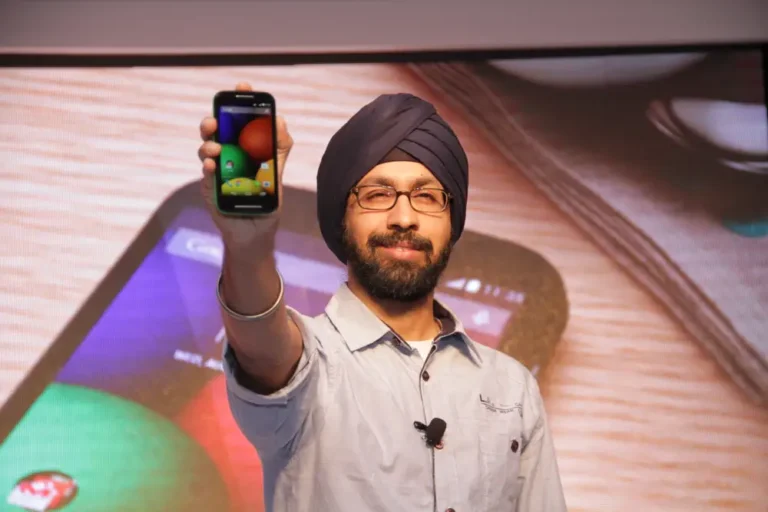How an Army combat medic pivoted to filmmaking, thanks in part to a Sundance program that fostered directors like Ryan Coogler and Chloe Zhao

- Rashad Frett is a former Army combat medic who has become a filmmaker.
- He was admitted as part of a small group to the Sundance Institute’s Directors Lab this year.
- Frett explained how the elite program helped kickstart and supercharge his career.
Rashad Frett was 17 years old when he became a combat medic, an experience that would shape his style as a filmmaker more than two decades later.
Frett saw some dark days in the Army, such as September 11, 2001, when his unit was deployed to New York to aid in the disaster recovery effort. “Experiencing that tragedy changed me,” he said, encouraging him to “voice my perspectives and opinions on social issues.”
That sense of purpose aided Frett’s transition to a new career as a filmmaker.
Frett’s participation in the Sundance Institute’s 2023 Directors Lab, a summer program at the Sundance Mountain Resort — near Park City, the Utah town that hosts the Sundance Film Festival — where participants rehearsed, filmed, and edited selected scenes from screenplays they’re developing with the help of program alums — was a driving force propelling him further along this path.
The Directors Lab is a supercharged accelerator for new filmmakers, with graduates ranging from Quentin Tarantino and Gina Prince-Bythewood to Ryan Coogler and Chloe Zhao. Entry into the program is competitive — the Directors and Screenwriters Labs admitted 12 fellows this year — which means “there are many projects that we can’t support,” according to Michelle Satter, the Institute’s Feature Film program’s founding director.
“We want to stay within the numbers that we have the capacity to support, and we want to do it in a very in-depth way,” said Satter, who has been with the lab program since its inception. Satter’s development of new talent has largely occurred outside of the Hollywood spotlight, but this year she will be in the spotlight: she will receive the Academy of Motion Picture Arts and Sciences Jean Hersholt Humanitarian Award in November, alongside fellow honorary Oscar winners Angela Bassett, Mel Brooks, and film editor Carol Littleton.
Satter has one IMDb producer credit — on the 1986 film “Desert Bloom” — and 73 “special thanks” credits, on films ranging from Tarantino’s “Reservoir Dogs” to Coogler’s “Fruitvale Station.” She praised Frett, describing him as a “beautiful soul” who “leads with kindness and focus in his work.”
“He’s looking for truth in the characters and their behavior,” Satter stated. “He brings a unique vision.”
How Frett found his ‘calling’ in Hollywood
Satter’s vision in Frett was sharpened through a circuitous route.
After bouncing around for a few years, Frett landed at New York University, where he earned his master’s degree in fine arts two years ago.
“I finally felt like this is where I’m supposed to be,” he said in a recent interview. “This is my calling.” He explained that he had followed in the footsteps of one of his NYU professors, Spike Lee, who also earned a master’s degree there. Embracing the power of visual arts “set me on a new path of creating stories from behind the lens and being the voice of my community,” Frett added.
Frett came to the Directors Lab this summer with a film called “Ricky” that he’d started at NYU, where he co-wrote the script as a thesis project. “Ricky,” co-written with director and producer Lin Que Ayoung, is about a former convict who is attempting to rebuild his life. It’s a 20-minute short that premiered at the Sundance Film Festival in January, and Fretts spent his time at the Directors Lab developing it into a feature film, filming multiple scenes. Earlier this year, he refined the script as part of the Screenwriters Lab.
Frett is now represented by top Hollywood agency WME, in part because of his Sundance credentials. But, he admitted, it took a few tries before his application to join the Directors Lab was accepted. Finally getting a “yes” this year gave him a rush unlike any other, he recalled. “Once I got in, it felt like it was the right time for me to get in and to be amongst so many people that I actually watched and respected their work growing up,” Frett stated. “It was an unreal feeling.”
One of the program’s strengths, according to Frett and Satter, is the contributions of Lab alumni who go on to serve as advisors to future cohorts. “So much of the lab has flourished because our alums are available and willing and want to give back,” Satter stated.
Frett mentioned Emmy-winning director Joan Darling and writer, director, and choreographer Joan Tewkesbury as mentors he worked with at the Directors Lab. But it’s not just former program participants who are pitching in. Some of his old Army buddies let him use their homes to film scenes for “Ricky.”
Breaking into Hollywood is more difficult than ever, but newcomers like Frett are determined not to give up.
Sundance Directors Lab has long been a key pipeline to Hollywood, but the writers’ and actors’ strikes that roiled the industry this year have complicated the path forward for emerging filmmakers. “It is harder right now to enter as a creative or wanting to be part of the business of the industry,” Satter stated.
The near-production halt has given Frett — who has stated that he is an advocate for “artists being paid their dues” and can “relate what they’re fighting for with the current state of where the industry is” — the opportunity to work intensively on his script.
“It’s really about finding an inroad to getting to expand yourself and grow again in the business or as an artist,” Satter stated. “And it is tough, and that’s why you need community.”
Frett hopes to pay forward the advice he received from some of his mentors by advising up-and-coming filmmakers as they develop their projects and their distinct voices. “One of many takeaways that I got from the lab,” he stated, “was to continue to fight for my vision as a creative — and to never let anyone tell me that my story doesn’t matter.”






